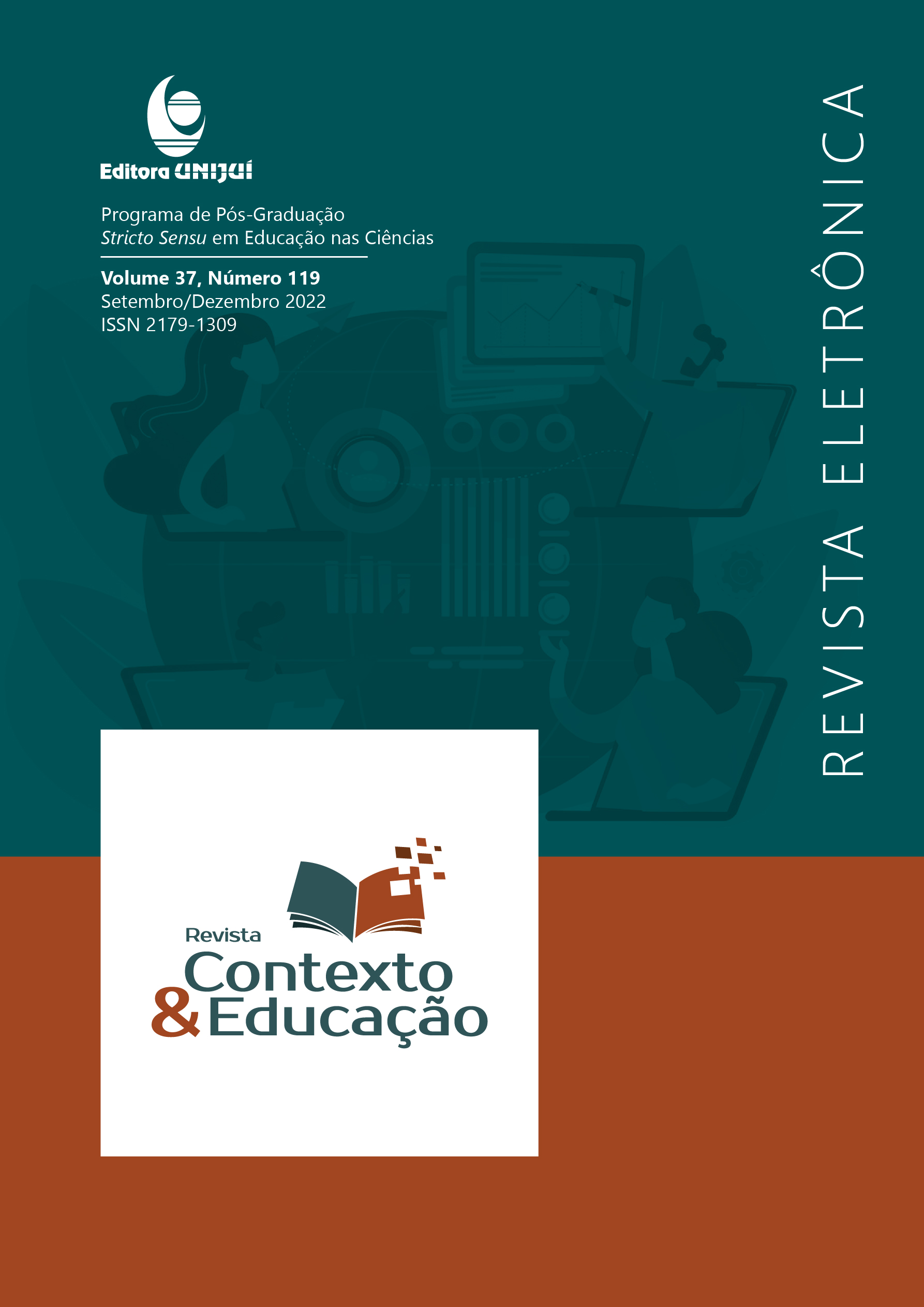Estratégias de educação ambiental sobre o tema “agrotóxicos”: Revisão sistemática
DOI:
https://doi.org/10.21527/2179-1309.2022.119.12578Palavras-chave:
Agrotóxicos. Educação. Métodos Educativos. Revisão Sistemática da Literatura.Resumo
Um dos desafios na Educação Ambiental é promover ações educativasnuma perspectiva de formação crítica e participativa dos cidadãos, sobre os impactos socioambientaiscomoo uso indiscriminado de agrotóxicos.Este estudo teve como objetivo identificar e discutir as pesquisas de Educação Ambiental realizadas no Brasil, publicadas em dissertações e teses que abordem as estratégias educativas de ensino com ênfase a temática agrotóxicos. O estudo configura-se como uma Revisão Sistemática da Literatura, sendo que a coleta de dados foi realizada entre os meses de novembro a dezembro de 2020, nas bases de dadosCatálogo de Teses e Dissertações da Capes (CTD/Capes) e Biblioteca Digital de Teses e Dissertações (BDTD). A busca resultou em 12 estudos, sendo 1 tese e 11 dissertações, produzidas entre os anos 2011 e 2020. As informações foram analisadas mediante protocolo de estudo e categorizadas para análise do conteúdo, permitindo a realização de inferências e interpretações, ancoradas na literatura científica. Os resultados desta revisão endossam a relevância das estratégias em Educação Ambiental para promoção de uma educação transformadora com alunos e futuros cidadãos críticos e reflexivos, comprometidos com a cidadania e com responsabilidade social relacionadas ao uso de agrotóxicos.
Downloads
Publicado
Como Citar
Edição
Seção
Licença
Copyright (c) 2022 Revista Contexto & Educação

Este trabalho está licenciado sob uma licença Creative Commons Attribution 4.0 International License.
Ao publicar na Revista Contexto & Educação, os autores concordam com os seguintes termos:
Os trabalhos seguem a licença Creative Commons Atribuição 4.0 Internacional (CC BY 4.0), que permite:
Compartilhar — copiar e redistribuir o material em qualquer meio ou formato;
Adaptar — remixar, transformar e criar a partir do material para qualquer fim, inclusive comercial.
Essas permissões são irrevogáveis, desde que respeitados os seguintes termos:
Atribuição — os autores devem ser devidamente creditados, com link para a licença e indicação de eventuais alterações realizadas.
Sem restrições adicionais — não podem ser aplicadas condições legais ou tecnológicas que restrinjam o uso permitido pela licença.
Avisos:
A licença não se aplica a elementos em domínio público ou cobertos por exceções legais.
A licença não garante todos os direitos necessários para usos específicos (ex.: direitos de imagem, privacidade ou morais).
A revista não se responsabiliza pelas opiniões expressas nos artigos, que são de exclusiva responsabilidade dos autores. O Editor, com o apoio do Comitê Editorial, reserva-se o direito de sugerir ou solicitar modificações quando necessário.
Somente serão aceitos artigos científicos originais, com resultados de pesquisas de interesse que não tenham sido publicados nem submetidos simultaneamente a outro periódico com o mesmo objetivo.
A menção a marcas comerciais ou produtos específicos destina-se apenas à identificação, sem qualquer vínculo promocional por parte dos autores ou da revista.
Contrato de Licença (para artigos publicados a partir de outubro/2025): Os autores mantém os direitos autorais sobre seu artigo, e concedem a Revista Contexto & Educação o direito de primeira publicação.


